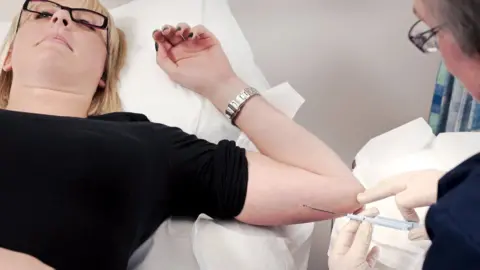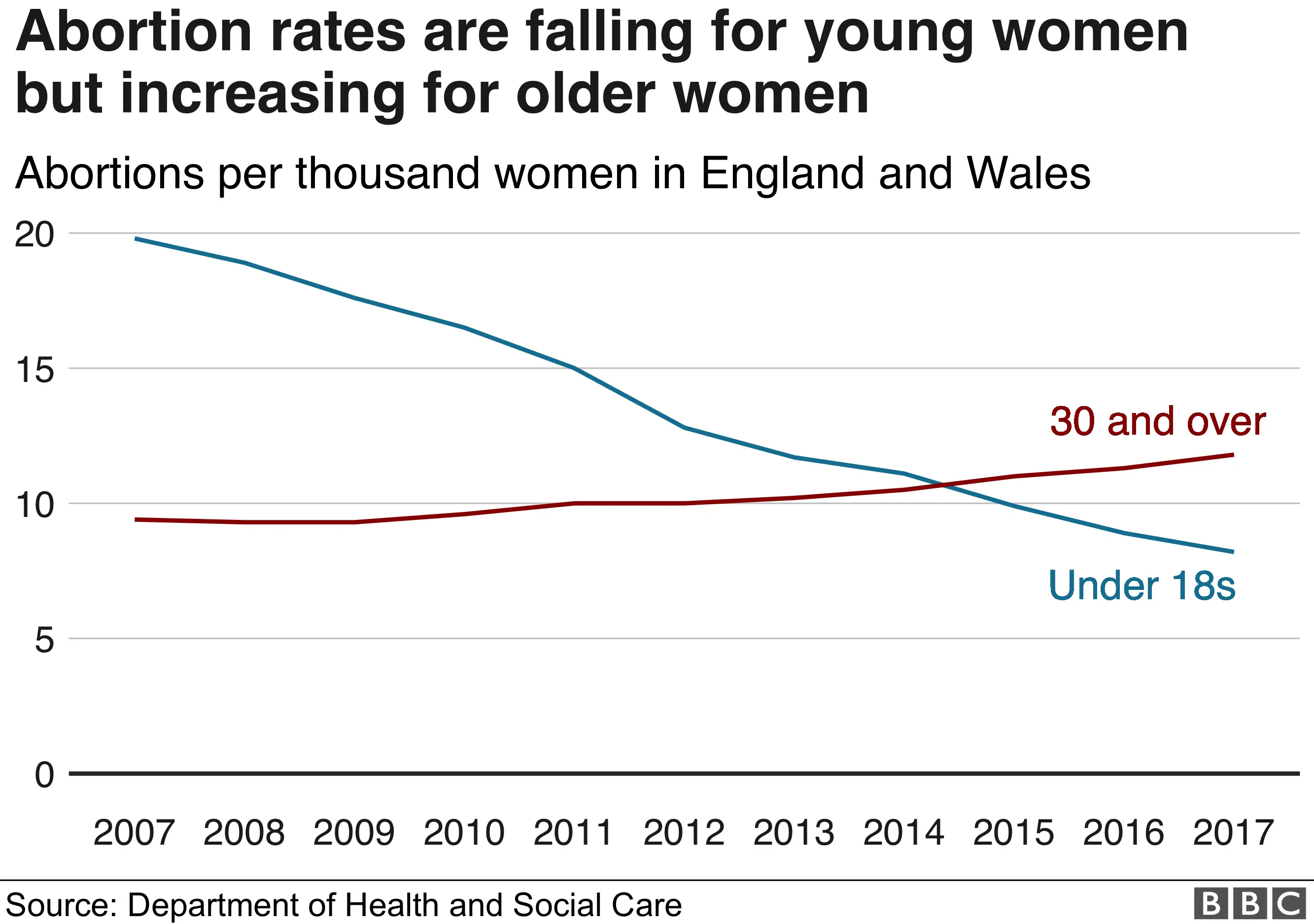Women 'struggling to access contraception'
Doctors are warning that contraceptive access is at a "crossroads", with services being cut across England.
Figures seen exclusively by the BBC show half of councils have cut, or plan to cut, services, particularly affecting long-acting contraception.
Leading reproductive health consultant Dr Asha Kasliwal has warned this may be a factor in rising abortion rates in older women.
The Department of Health says local councils allocate their health budgets.
Through Freedom of Information requests, the Advisory Group on Contraception obtained data suggesting that almost half of all councils in England have closed, or plan to cut, the number of sites providing contraception services between 2015 and 2019.
The AGC contacted all 152 local authorities in England, with 74 (49%) saying they have reduced, or plan to reduce, the number of sites commissioned to deliver contraceptive services in at least one year between 2015/16 and 2018/19.
While the most widely accessible form of contraception is condoms, and the most commonly prescribed the contraceptive pill, increasing numbers of women are asking for long-acting forms of contraception - like the coil and implants.
These are more effective than the pill and the most popular form of contraception for older women - and recommended by the NHS.
Between 2014 and 2016, three-quarters of councils in England had reductions in long-acting reversible contraceptives (LARCs) being fitted by GPs and walk-in clinics because fewer GPs had the time or training to fit them, leading to women increasingly having to seek appointments at sexual health clinics.
Progress 'under threat'
Dr Louise Skioldebrand is one of only a handful of GPs still carrying out fittings in Stowmarket, Suffolk.
She said: "There are only a certain number of GPs who are trained to fit coils and implants. We have a six-week waiting time. I think there's a real risk that unplanned pregnancies will go up. I would guess in a year's time, we will have more."
Prof Helen Stokes-Lampard, chair of the Royal College of GPs, said: "It's extremely concerning to hear of such large-scale cuts, or plans to cut, contraceptive services, across England - actions that will potentially affect millions of women.
 SCIENCE PHOTO LIBRARY
SCIENCE PHOTO LIBRARY"It seems bizarre when there is strong evidence that investing in good contraception services is one of the most cost-effective healthcare interventions available."
She added: "It's also incredibly frustrating, because we've actually had years of improvement in the quality of sexual and reproductive healthcare in the UK; we've seen teenage pregnancy rates halved; we've seen take up of LARCs increasing.
"But the most recent data shows prescriptions for LARCs - reliable, cost-effective contraception - decreasing.
"We're at a crossroads, whereby all the progress we've made is under serious threat, and we fear it will be some of our most vulnerable patients who are affected most."
Prof Lampard said the way sexual and reproductive health services were organised was too fragmented. And she said the college was aware of GPs who had been running LARC-fitting clinics, but not being adequately funded to do so.

Dr Kasliwal, president of the Faculty of Sexual and Reproductive Healthcare which represents 15,000 doctors and clinicians, added: "My concern is that the unmet need (for contraception) might get translated into unplanned pregnancies and possibly the increased abortion rates that we are seeing today.'
'Choices available'
Lisa Hardin from Northampton had an unplanned pregnancy while taking the contraceptive pill last year. After her daughter's birth, she wanted to get an implant, but her GP had stopped fitting them so she had to go to a clinic.
"I had to wait another two months until I actually got my implant in - but no-one thinks, for three months, what are you supposed to do in the meantime? I was so worried about getting pregnant."
The Department of Health and Social Care says it is up to local councils to allocate the public health budget - including funding for contraception services.
"We have a strong track record on sexual health - sexually transmitted infections continue to fall and teenage pregnancies are at an all-time low.
"A wide range of contraceptive choices are available free of charge from most GP surgeries, community contraceptive clinics and sexual health clinics."

